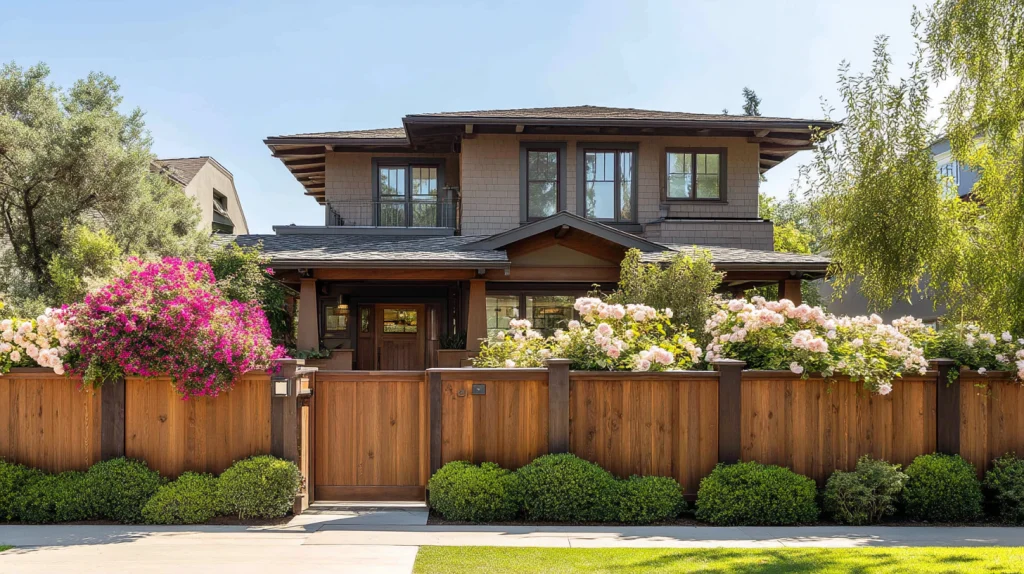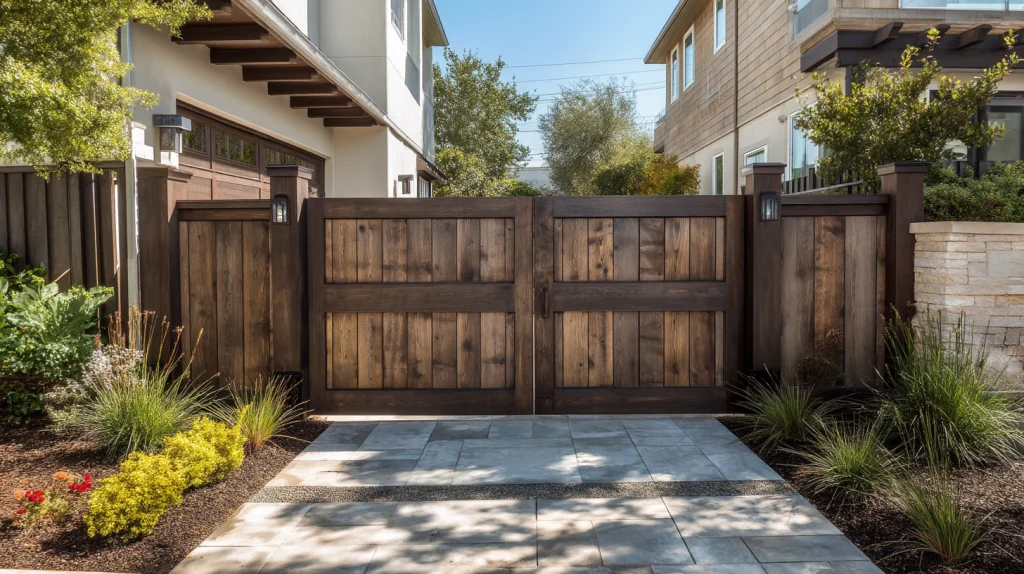If you’re considering a new metal gate for your home or business, one of the first questions that comes to mind is cost. With so many options, manual or automatic, steel or wrought iron, sliding or swinging gate styles, the price range can vary dramatically.
In this guide, we break down exactly what drives the cost of a metal gate in 2025 so you can plan your budget with confidence and clarity.
Whether you’re installing a gate for your front yard, a garden pathway, or across a driveway, you’ll find that each project has specific needs. From basic fence gates to high-end automated security systems, understanding what you’re paying for ensures your investment is protected for years to come.
Material Costs: How Much Does a Metal Gate Cost
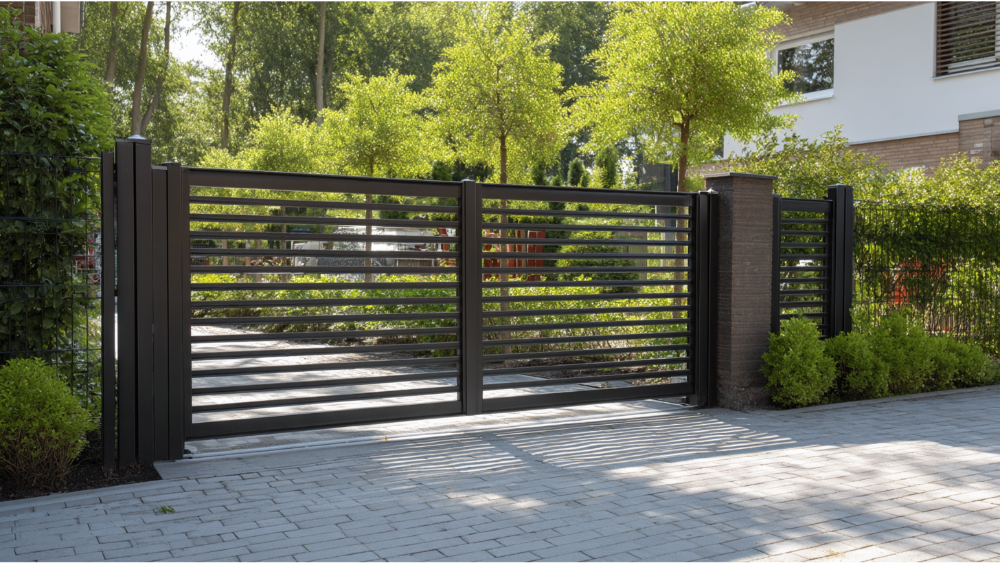
The gate material you choose will have a major impact on your total cost. Each material carries its own pros, cons, and long-term maintenance requirements. Let’s take a closer look at the common types used in today’s market.
Chain-Link Gates
- Material Costs: $100–$500
- Best For: Side yards, backyard entrances, utility areas, or extending an existing fence
Chain-link gates are among the most affordable options available. While they aren’t known for aesthetics, they serve practical purposes for both homes and commercial properties. If you’re adding a gate to an existing chain-link fence, you’ll save on installation costs since you’re not starting from scratch.
Steel and Aluminum Gates
- Material Costs: $600–$4,000
- Best For: Driveways, automatic access, residential entries
Steel gates offer robust strength, while aluminum gates resist corrosion and work well in humid climates. These materials allow for custom designs and finishes, especially when paired with vinyl fences or integrated with electronic lock keypads for added security.
Wrought Iron Gates
- Material Costs: $1,500–$10,000+
- Best For: Decorative entryways, estates, businesses with strong visual branding
Wrought iron is a high-end, durable material ideal for ornamental designs. While the upfront cost is higher, it pays off in long-term durability and curb appeal. These gates are often customized with arches, monograms, or even intercom systems for access control. Keep in mind, iron gates will need ongoing care to prevent rust.
Vinyl or Chain Link Options
Vinyl gates are increasing in popularity thanks to their low maintenance and clean, modern look. A vinyl fence gate resists moisture, doesn’t rust, and is a good fit for garden or backyard spaces. Compared to chain link, vinyl has a higher price point per linear foot but offers better visual integration with vinyl fences and homes.
Understanding Gate Posts and Structural Supports

Gate posts are one of the most overlooked, but critical, parts of any gate system. Whether you’re installing a steel driveway gate or a simple fence gate for your backyard, strong gate posts provide the foundation.
- Steel posts are best for heavy-duty applications like wrought iron or automated gates
- Aluminum posts work well with lighter weight systems or vinyl configurations
- Posts may require concrete footings, especially if installed across a wide car entry point or where the soil is loose
Choosing the correct post type, gate hardware like hinges and latches, and installation depth ensures that your gate functions reliably and doesn’t sag or shift over time. Hinges, especially for sliding or swinging gate systems, must be rated for the weight and frequency of use to avoid costly repairs later.
Sliding Gates vs. Swing Gates: Cost and Space Considerations
Sliding Gates
- Installation Cost: $2,000–$8,000+
- Ideal for driveways with limited clearance or sloped terrain
Sliding gates are popular in both residential and commercial settings where space is tight. They slide along a track or cantilever above the ground and often come equipped with advanced security technology like cameras or motion sensors.
Swing Gates
- Installation Cost: $1,000–$5,000+
- Better for flat surfaces with enough room to open inward or outward
Swing gates are more traditional and generally cost less than sliding gates. They are ideal for large garden entrances, backyard enclosures, or areas without slope restrictions. Many swing gates can be upgraded with locks, intercom systems, or even solar-powered automation for convenience.
Your property’s layout, width, slope, and whether you’re replacing an existing fence gate, will heavily influence which style works best.
Automatic Driveway Gate Costs and Features
Automation is where convenience meets security. An automatic driveway gate gives you control over who enters your property, whether you’re home or away. These gates come with various access features and can integrate with modern smart home setups.
Automation Components
- Gate motor and opener: $1,000–$3,500
- Keypad or electronic lock keypads: $300–$1,000
- Safety sensors, loops, or security cameras: $300–$800
- Trenching for power or server connections: $1,000–$3,000
You can even incorporate advanced security technology like facial recognition, remote app access, and permission-based entry systems. For commercial clients, these features reduce liability while keeping people and property secure.
Total Cost of an Automatic Driveway Gate
- Complete System: $4,000–$12,000+
The total will vary based on size, material, and features. But most clients agree the money spent on automation pays for itself in peace of mind and ease of use.
What’s the True Installation Cost of a Metal Gate?
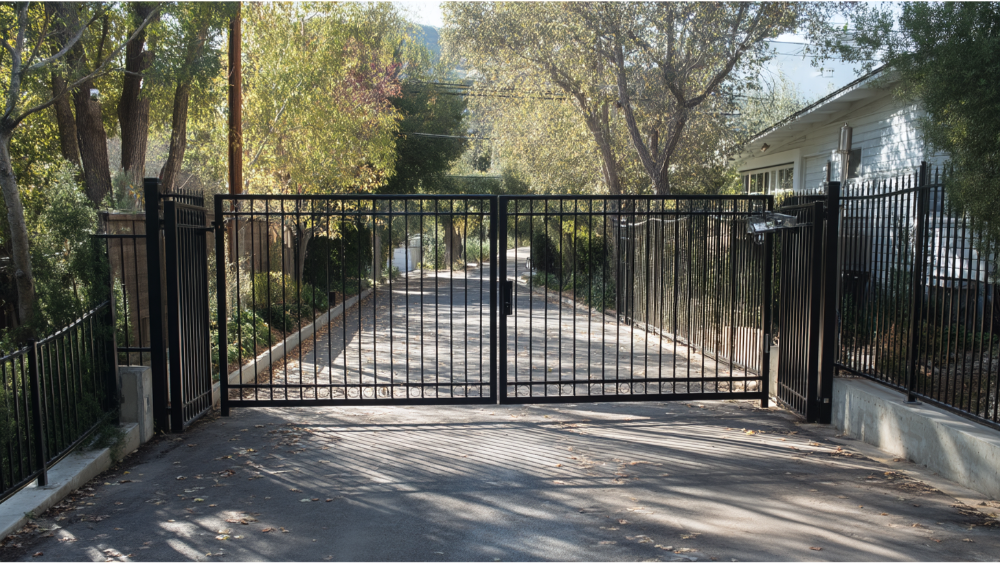
You don’t just pay for the gate, you pay for labor, engineering, and integration. A proper gate installation involves more than just digging holes and mounting panels.
- Manual Gate Installation: $300–$1,500
- Automatic Gate Installation: $2,000–$5,000+
- Labor in Texas: $15–$80/hour
- Trenching, electrical, or server wiring: additional cost
- Vinyl or wood panel integration with existing fence: extra depending on material and layout
Many homeowners worry about hidden fees. At Inline Security Fence, we ensure everything is covered in your estimate, from post installation and electronic components to any required http system connectivity or safety signs.
Additional Factors That Affect Gate Costs
Permits and HOA Rules
Installing a gate sometimes requires permission from your local HOA or city. Permit costs typically range from $100 to $500, and approvals may be needed if your gate faces a public street or alters traffic flow.
Maintenance Costs
Even low-maintenance materials like vinyl gates or aluminum still need occasional cleaning and inspections. Wrought iron may require repainting. Automated systems need yearly service on motors and software updates, especially if linked to intercom systems or security cameras.
Why Choose a Security Gate for Your Property?
Security gates are about more than just appearance. A properly installed security gate protects your family, business, or assets. It controls access, boosts property value, and enhances peace of mind.
- Keep vehicles safe from theft or damage
- Add security to your garden or backyard area
- Control entry with locks, electronic keypads, or even facial recognition
- Monitor activity with connected cameras and intercoms
When paired with other security measures like signs, fences, and lighting, a modern gate system becomes a cornerstone of smart property protection.
Choosing the Right Contractor for Gate Installation
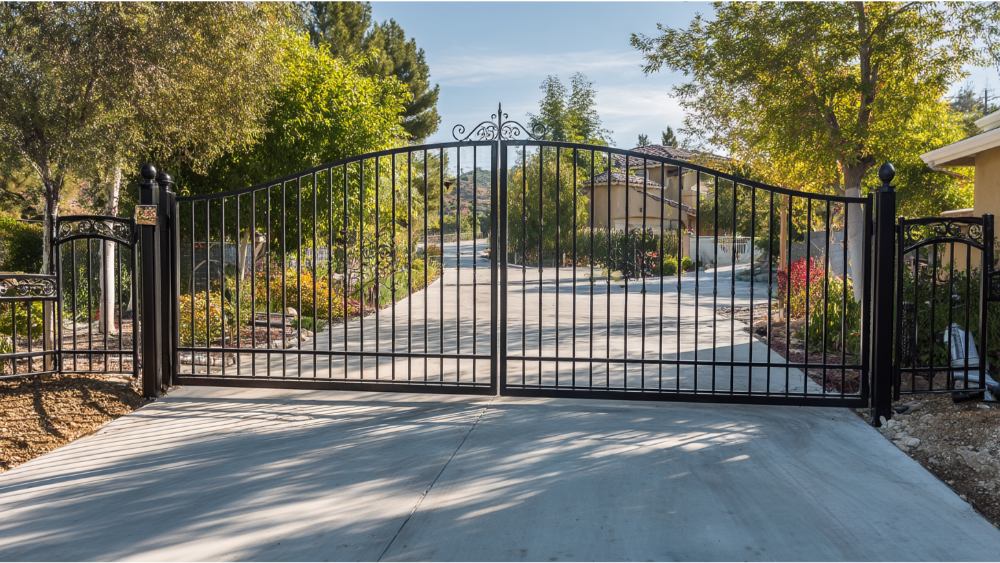
Gate installation is not a DIY project, it requires expertise in welding, electrical work, and structural design. Inline Security Fence brings years of hands-on experience with residential and commercial properties across Texas.
We understand what makes a gate reliable, secure, and attractive. Whether you need to fit a gate into an existing fence line or want to design a brand-new entry point from scratch, our team will guide you through every phase, without the worry of unexpected delays or costs.
Frequently Asked Gate Pricing, Materials, and Installation Questions
What’s the cheapest type of metal gate?
Chain-link is generally the most affordable, especially when added to an existing fence.
What are the most durable gate materials?
Powder-coated steel and aluminum last the longest with minimal maintenance. Wrought iron is highly durable but requires regular upkeep.
Can I add automation to an existing gate?
Yes, but you’ll need to ensure it’s structurally sound and compatible with motor systems and smart security technology.
How long does gate installation take?
Manual gates may take 1–2 days; automated systems often require 3–5 days depending on trenching and layout.
Are metal gates worth the investment?
Absolutely. The value they add to security, convenience, and curb appeal make them well worth the dollars spent.
Final Thoughts: Planning Your Gate the Smart Way
A metal gate is more than just a physical barrier, it’s an investment in safety, efficiency, and style. From small backyard entrances to large automatic driveway gates, the cost depends on your material choices, layout, and the level of security technology you want to integrate.
Inline Security Fence helps you make informed decisions with transparency, skill, and local expertise. If you’re ready to explore custom options, get a free quote today and see how we can meet your specific needs, with no surprises and no stress.


